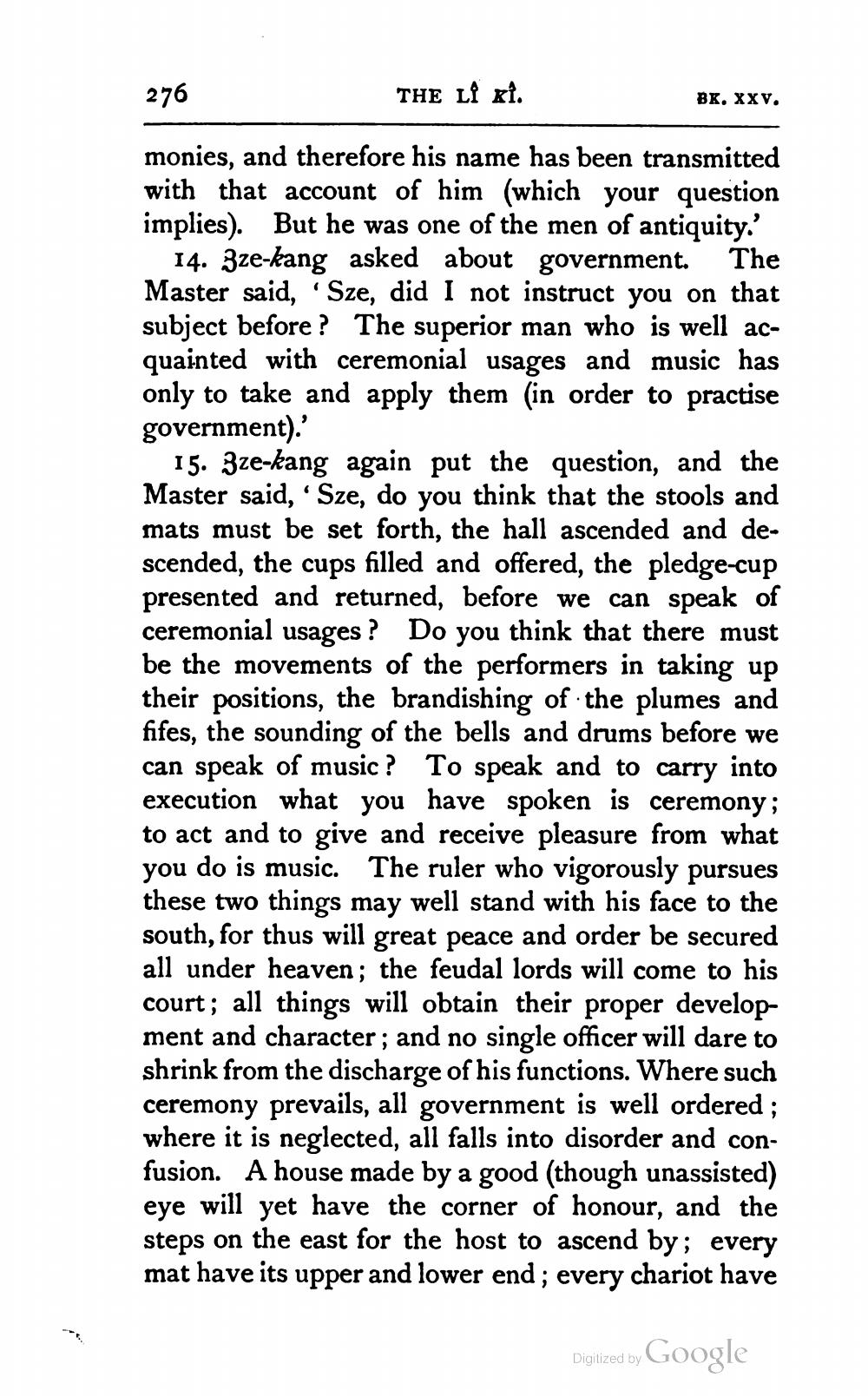________________
276
THE LÎ ki.
BK, XXV.
monies, and therefore his name has been transmitted with that account of him (which your question implies). But he was one of the men of antiquity.'
14. Zze-kang asked about government. The Master said, 'Sze, did I not instruct you on that subject before? The superior man who is well acquainted with ceremonial usages and music has only to take and apply them in order to practise government).'
15. Zze-kang again put the question, and the Master said, 'Sze, do you think that the stools and mats must be set forth, the hall ascended and descended, the cups filled and offered, the pledge-cup presented and returned, before we can speak of ceremonial usages ? Do you think that there must be the movements of the performers in taking up their positions, the brandishing of the plumes and fifes, the sounding of the bells and drums before we can speak of music? To speak and to carry into execution what you have spoken is ceremony; to act and to give and receive pleasure from what you do is music. The ruler who vigorously pursues these two things may well stand with his face to the south, for thus will great peace and order be secured all under heaven; the feudal lords will come to his court; all things will obtain their proper development and character; and no single officer will dare to shrink from the discharge of his functions. Where such ceremony prevails, all government is well ordered ; where it is neglected, all falls into disorder and confusion. A house made by a good (though unassisted) eye will yet have the corner of honour, and the steps on the east for the host to ascend by; every mat have its upper and lower end; every chariot have
Digitized by Google




